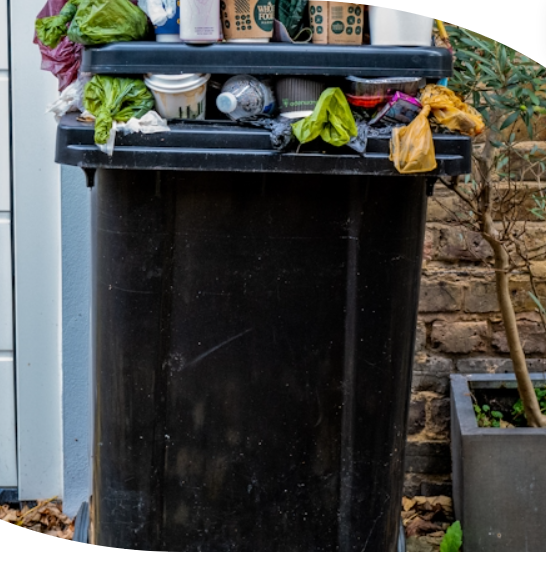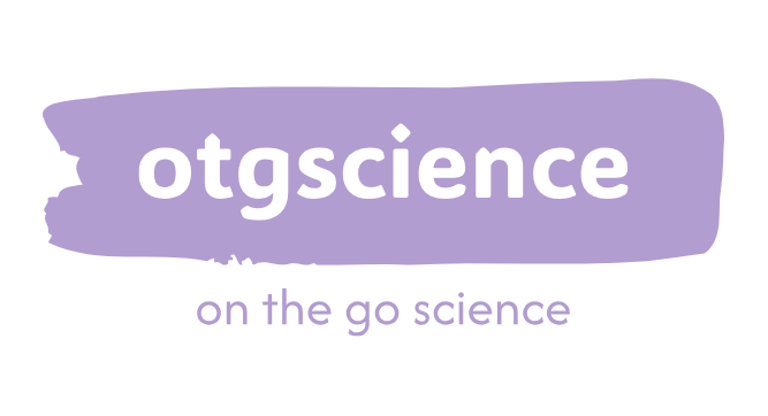Zero Waste Day: A Step Towards a Sustainable Future
7 min read


Zero Waste Day:
A Step Towards a Sustainable Future
In today's world, where environmental concerns are growing day by day, we must take steps towards a sustainable future. One such step is observing a Zero Waste Day. This day is dedicated to raising awareness about the importance of waste management and finding innovative solutions to tackle the waste crisis that our planet is facing. In this blog post, we will explore the significance of Zero Waste Day, discuss the importance of waste management, and highlight some startups that are making a difference in this field.
Zero Waste Day is an annual event that encourages individuals, communities, and organizations to minimize their waste generation and strive for a zero-waste lifestyle. The concept behind Zero Waste Day is simple yet powerful: by reducing, reusing, and recycling, we can significantly reduce our environmental footprint and contribute to a healthier planet.
Waste management is a pressing issue that affects not only the environment but also human health. Improper disposal of waste leads to pollution of land, water, and air, causing harm to ecosystems and endangering wildlife. Moreover, the accumulation of waste in landfills releases greenhouse gases, contributing to climate change. By observing Zero Waste Day, we can educate ourselves and others about the importance of responsible waste management and take concrete actions to reduce waste generation.
One way to achieve a zero-waste lifestyle is by adopting the principles of the circular economy. This approach aims to minimize waste by designing products that can be easily repaired, reused, or recycled. It encourages the use of sustainable materials and promotes the concept of extended producer responsibility, where manufacturers take responsibility for the entire lifecycle of their products, including their disposal. By embracing the circular economy, we can move away from the linear "take-make-dispose" model and transition to a more sustainable and resource-efficient system.
Several startups are leading the way in the field of waste management and are making significant contributions towards achieving a zero-waste future. For example, Company X has developed innovative recycling technologies that can transform various types of waste into valuable resources. Their advanced sorting systems can separate different materials, such as plastics, metals, and paper, with high precision, enabling efficient recycling processes.
Another startup, Company Y, focuses on reducing food waste by implementing sustainable practices in the food industry. They work closely with restaurants, supermarkets, and other food businesses to minimize food waste at the source and redistribute surplus food to those in need. Through their efforts, Company Y not only reduces waste but also addresses issues of hunger and food insecurity in communities.
By highlighting these startups and their initiatives, we hope to inspire individuals and organizations to take action and contribute to a more sustainable future. Zero Waste Day serves as a reminder that each one of us has the power to make a difference through our daily choices and actions. Together, we can create a world where waste is minimized, resources are conserved, and the planet thrives.
Zero Waste Day serves as a reminder for individuals, communities, and businesses to reflect on their waste generation and take actions to reduce it. It is a day to educate ourselves about the impact of waste on our environment and find ways to minimize it. By observing this day, we can encourage others to adopt sustainable practices and work towards a greener future.
One of the key objectives of Zero Waste Day is to promote the concept of circular economy. Instead of the traditional linear model of "take, make, and dispose," a circular economy aims to keep resources in use for as long as possible, extracting the maximum value from them, and then recovering and regenerating products and materials at the end of their life cycle.
By embracing a circular economy, we can reduce the amount of waste that ends up in landfills or pollutes our oceans. This approach not only helps in conserving natural resources but also contributes to mitigating climate change and protecting biodiversity.
On Zero Waste Day, various activities and initiatives are organized to raise awareness about waste reduction and circular economy. These can include educational workshops, community clean-up drives, recycling campaigns, and sustainable product showcases. The goal is to engage people from all walks of life and inspire them to make conscious choices that minimize waste and promote sustainability.
Furthermore, Zero Waste Day serves as a platform for businesses to showcase their commitment to environmental responsibility. Companies can use this day to highlight their efforts in reducing waste, implementing sustainable practices, and developing innovative solutions for waste management. This helps build a positive brand image and encourages other businesses to follow suit and adopt more sustainable practices.
Zero Waste Day also emphasizes the importance of individual actions in achieving a waste-free future. It encourages individuals to rethink their consumption patterns, reduce single-use items, recycle and compost, and support local businesses that prioritize sustainability. By making small changes in our daily lives, such as carrying reusable bags, using refillable water bottles, and opting for eco-friendly packaging, we can collectively make a significant impact on waste reduction.
Moreover, Zero Waste Day serves as a reminder that waste is not just an environmental issue but has social and economic implications. Excessive waste generation puts a strain on resources, increases pollution, and can lead to health hazards for communities living near landfills or waste disposal sites. By addressing waste management holistically, we can create a more equitable and sustainable society, where resources are used efficiently, and everyone has access to a clean and healthy environment.
Waste Segregation at Source
Another effective solution for waste management is waste segregation at the source. This involves separating different types of waste at the point of generation, such as separating recyclables from non-recyclables. By doing so, it becomes easier to handle and process waste, increasing the efficiency of recycling and reducing the amount of waste that ends up in landfills.
Public Awareness and Education
Public awareness and education play a vital role in waste management. It is crucial to educate individuals about the environmental impact of improper waste disposal and the benefits of responsible waste management practices. This can be done through awareness campaigns, workshops, and educational programs in schools and communities. By raising awareness and providing information, we can empower individuals to make informed choices and take action towards proper waste management.
Waste Auditing and Monitoring
Regular waste auditing and monitoring can provide valuable insights into waste generation patterns and help identify areas for improvement. By conducting waste audits, we can determine the composition and quantity of waste generated, allowing us to develop targeted strategies for waste reduction and diversion. Monitoring waste management practices also ensures compliance with regulations and helps track progress toward waste management goals.
Collaboration and Partnerships
Addressing the complex issue of waste management requires collaboration and partnerships between various stakeholders. This includes government agencies, local communities, waste management companies, and non-profit organizations. By working together, sharing knowledge and resources, and implementing joint initiatives, we can develop comprehensive waste management systems that are sustainable and effective.
Innovative Technologies
Advancements in technology offer promising solutions for waste management. From smart waste bins that optimize waste collection routes to advanced recycling technologies that can process hard-to-recycle materials, innovation can significantly improve waste management practices. Investing in research and development of innovative technologies can help us find more efficient and sustainable ways to manage waste.
Policy and Regulatory Frameworks
Strong policy and regulatory frameworks are essential for effective waste management. Governments need to develop and enforce regulations that promote waste reduction, recycling, and proper disposal. This can include implementing landfill taxes, setting recycling targets, and incentivizing businesses and individuals to adopt sustainable waste management practices. By creating a supportive policy environment, we can encourage responsible waste management and drive positive change.
In conclusion, managing waste is a multifaceted challenge that requires a combination of strategies and actions. By implementing solutions such as reducing, reusing, recycling, composting, waste-to-energy conversion, extended producer responsibility, waste segregation, public awareness, and education, waste auditing and monitoring, collaboration and partnerships, innovative technologies, and policy and regulatory frameworks, we can move towards a more sustainable and efficient waste management system. Individuals, communities, businesses, and governments must work together and take collective action to address this pressing issue and create a cleaner and healthier environment for future generations.
Wasteless
Wasteless is a startup that is revolutionizing the way grocery stores manage and sell perishable food items. Their innovative pricing technology adjusts the price of products based on their expiration date, encouraging customers to purchase items that are closer to their sell-by date at a discounted price. By reducing food waste in the retail sector, Wasteless helps grocery stores increase their profitability while also minimizing their environmental impact.
BioCellection
BioCellection is a company that is tackling the problem of plastic waste. They have developed a technology that can turn plastic waste, which is often difficult to recycle, into valuable chemicals. By converting plastic waste into high-value products, BioCellection not only reduces the amount of plastic that ends up in landfills or oceans but also creates a sustainable solution for the plastic industry.
Re-Nuble
Re-Nuble is a startup that focuses on transforming food waste into organic fertilizers. Their innovative process involves converting food waste into nutrient-rich liquid fertilizers that can be used in agriculture. By repurposing food waste, Re-Nuble helps reduce landfill waste and provides a sustainable alternative to chemical fertilizers, promoting healthier and more environmentally friendly farming practices.
RRecycleis a technology company that uses artificial intelligence and computer vision to improve waste sorting and recycling processes. Their advanced software can identify and categorize different types of waste, making recycling more efficient and accurate. By automating waste sorting, Recycleye reduces the burden on human workers and increases the overall recycling rates, contributing to a more sustainable waste management system.
Enevo
Enevo is a startup that offers smart waste management solutions for businesses and municipalities. Their sensor-based technology monitors waste levels in bins and containers, providing real-time data and insights. This data enables businesses and municipalities to optimize waste collection routes, reduce unnecessary pickups, and improve overall operational efficiency. By streamlining waste management processes, Enevo helps minimize environmental impact and reduce costs.
These startups are just a few examples of the many innovative companies that are making a difference in waste management. Their creative solutions, driven by technology and sustainability, are reshaping the industry and paving the way for a more sustainable future.
Contacts
Socials
Subscribe to our newsletter
support@otgscience.in
Copyright © 2024 otgscience.in
.
